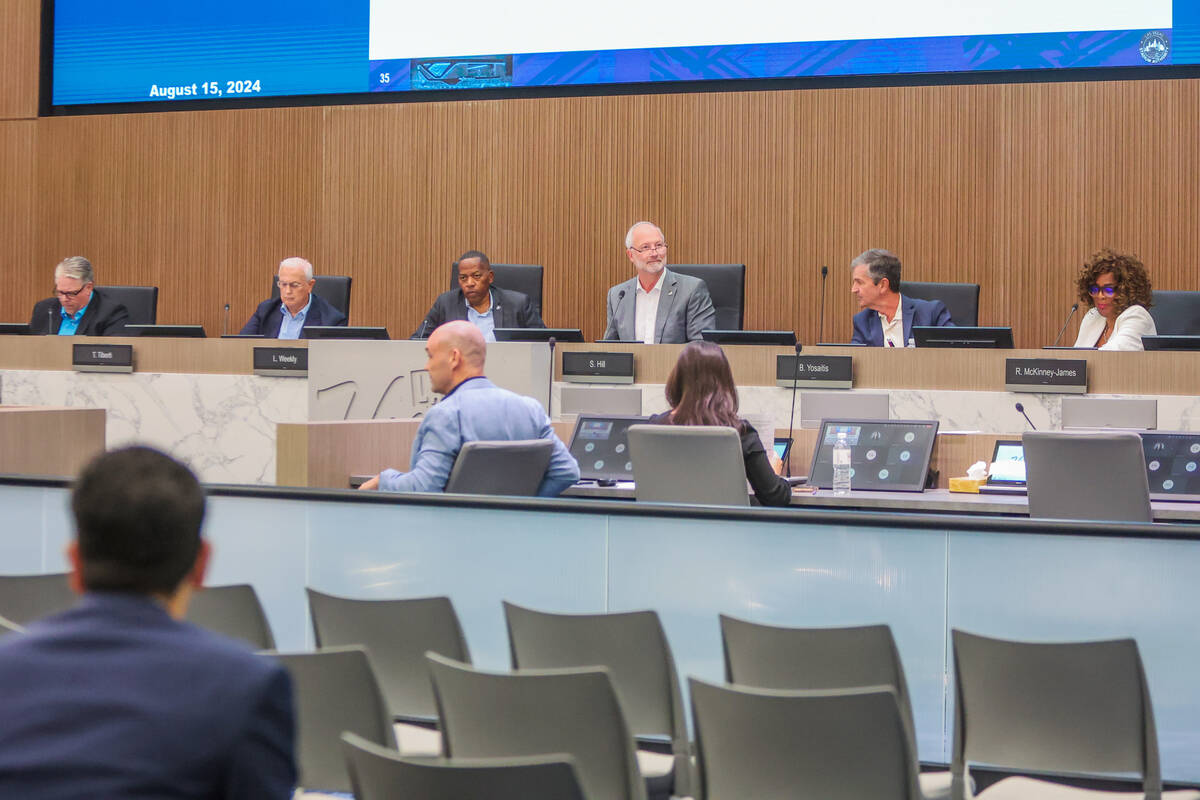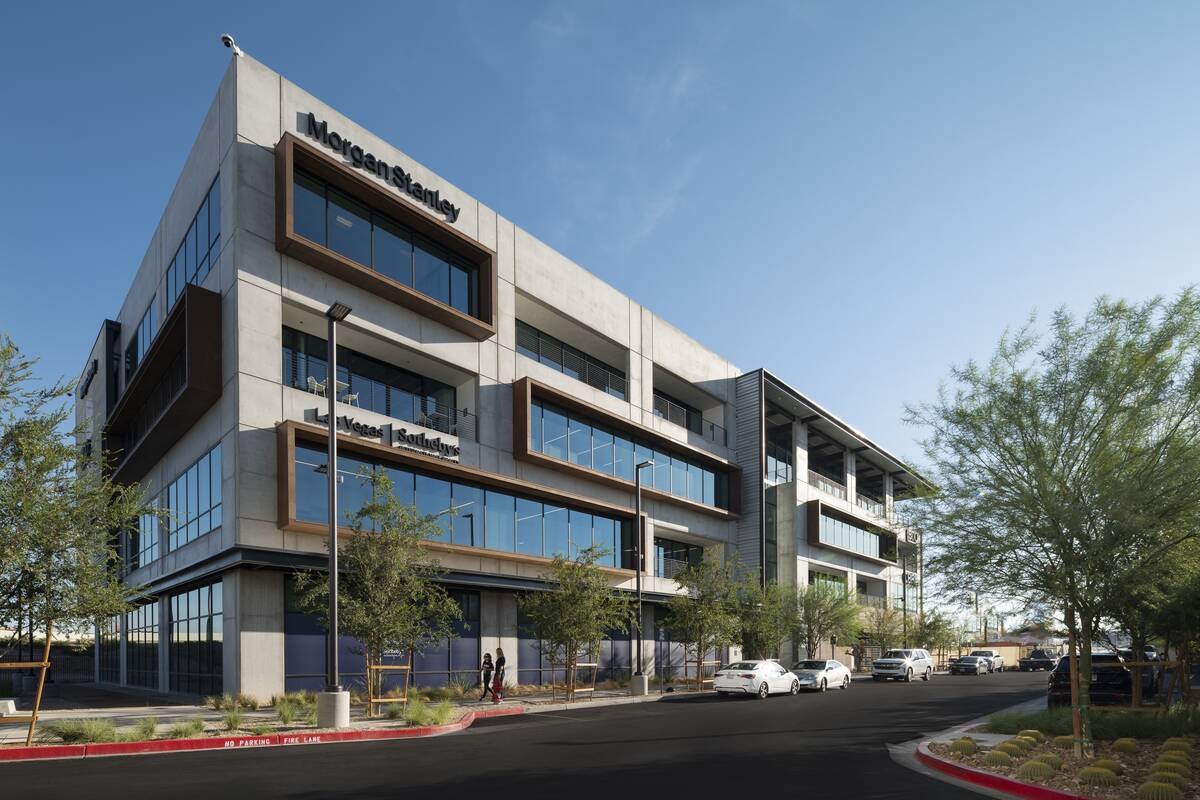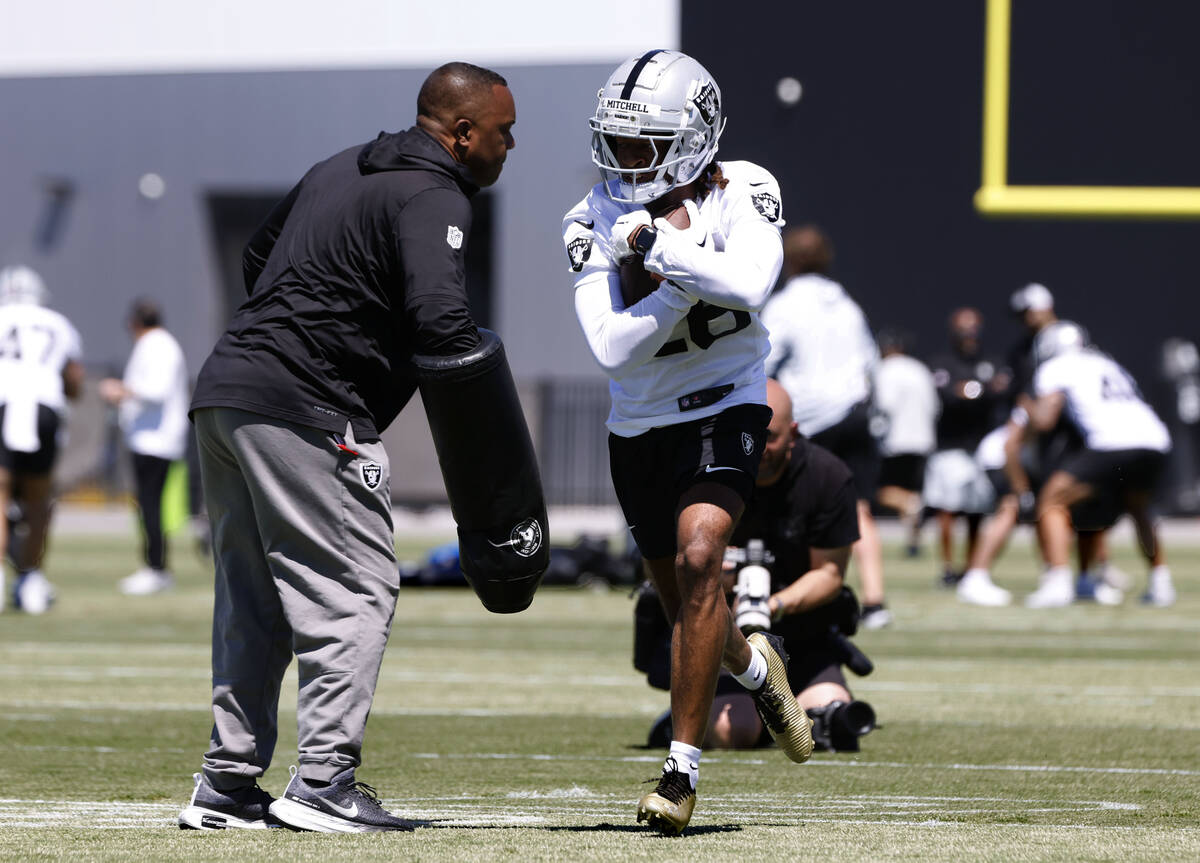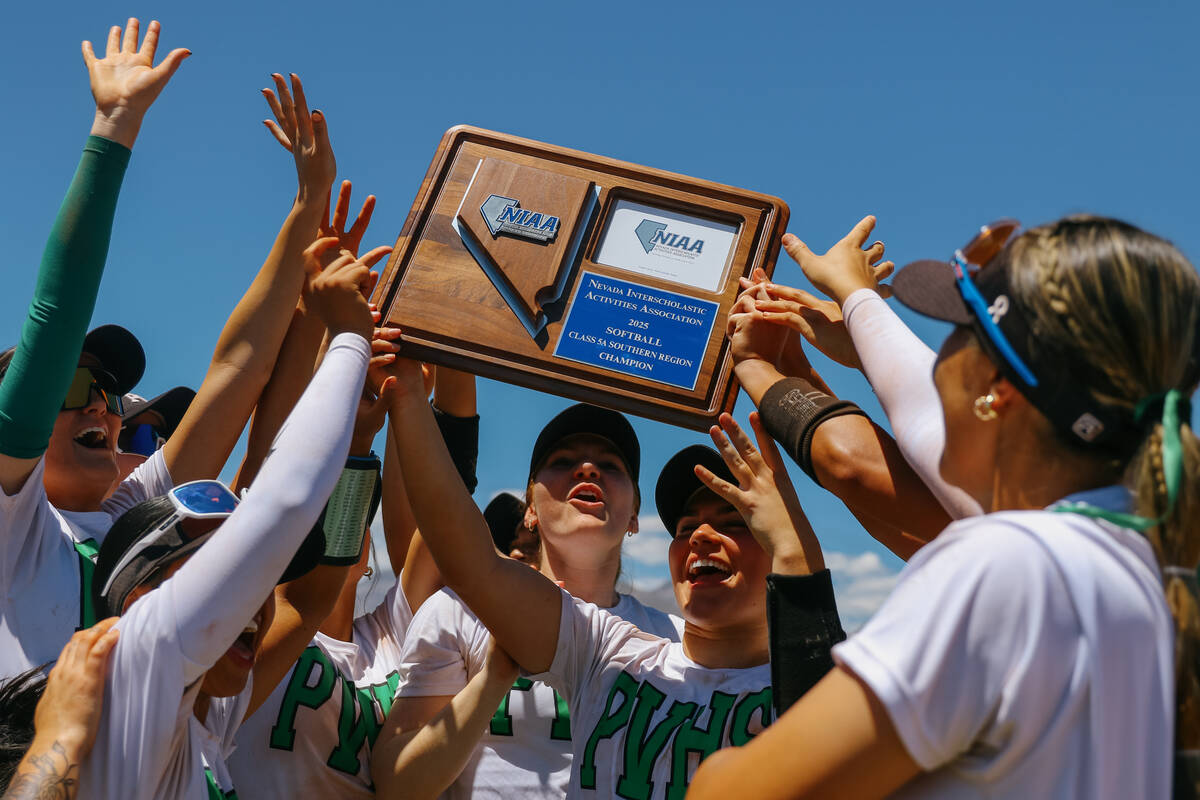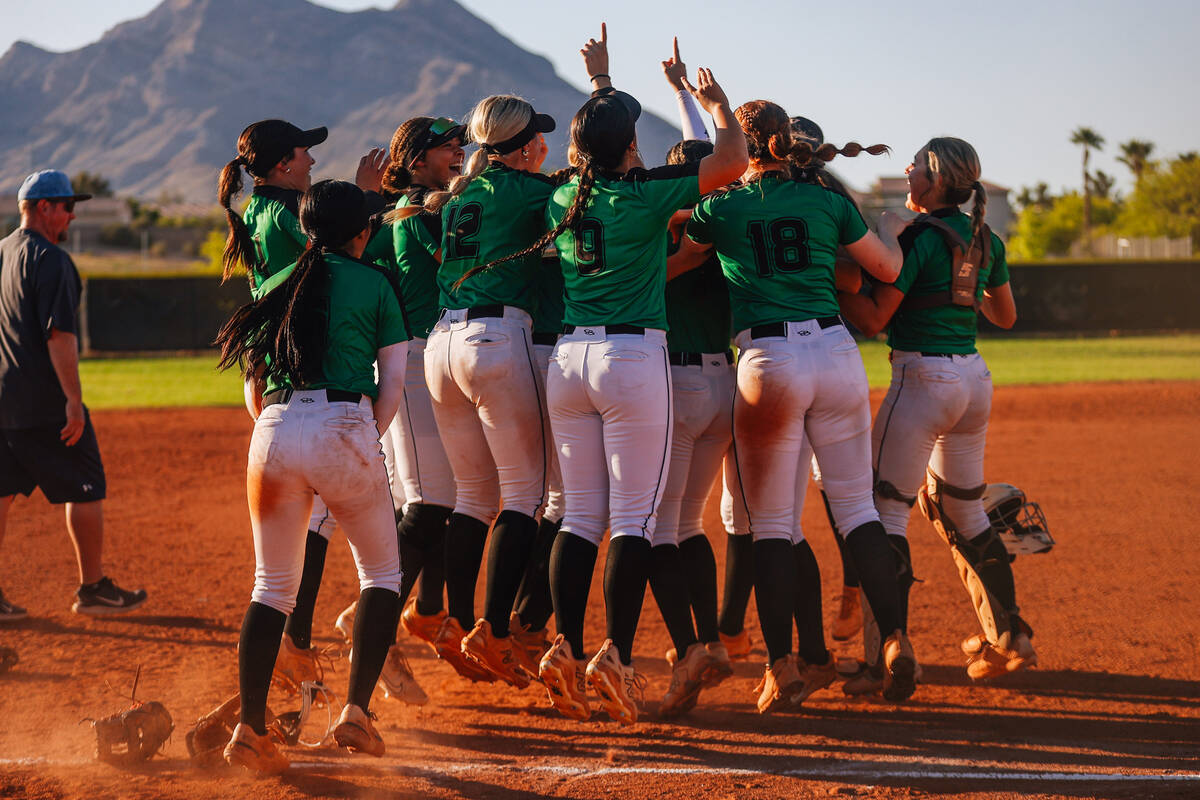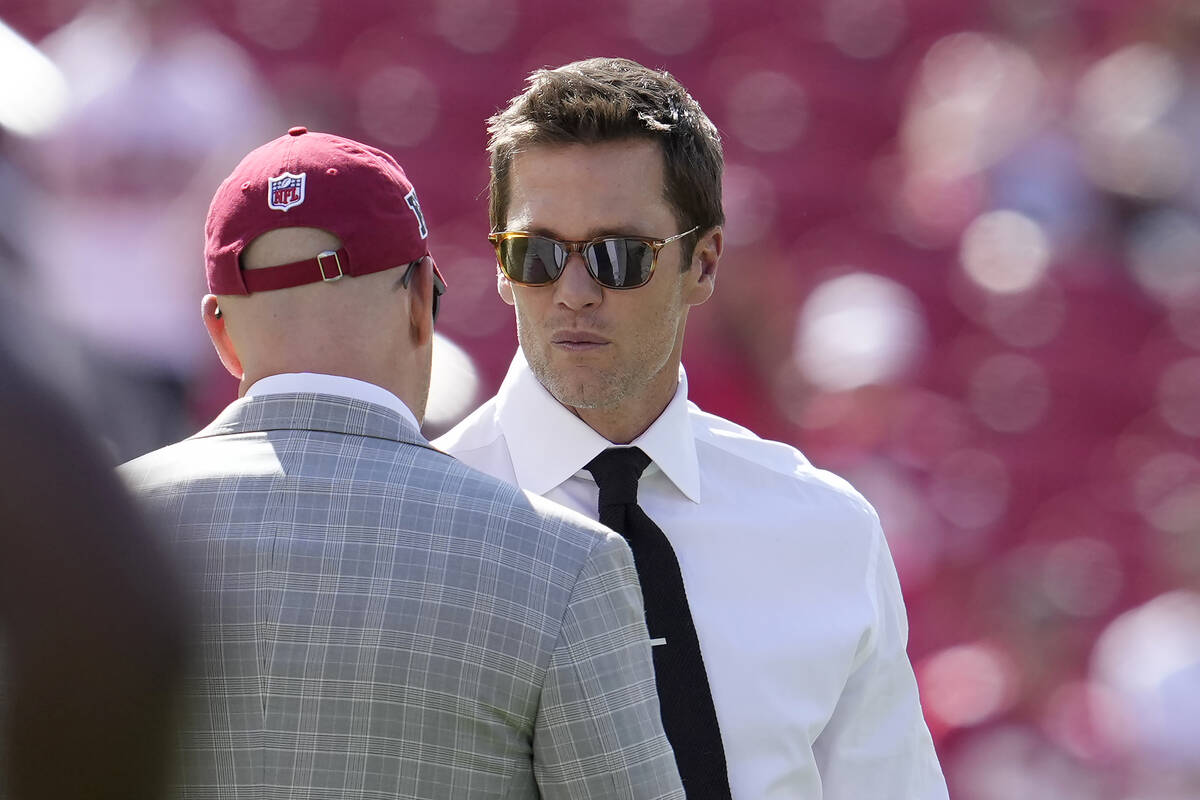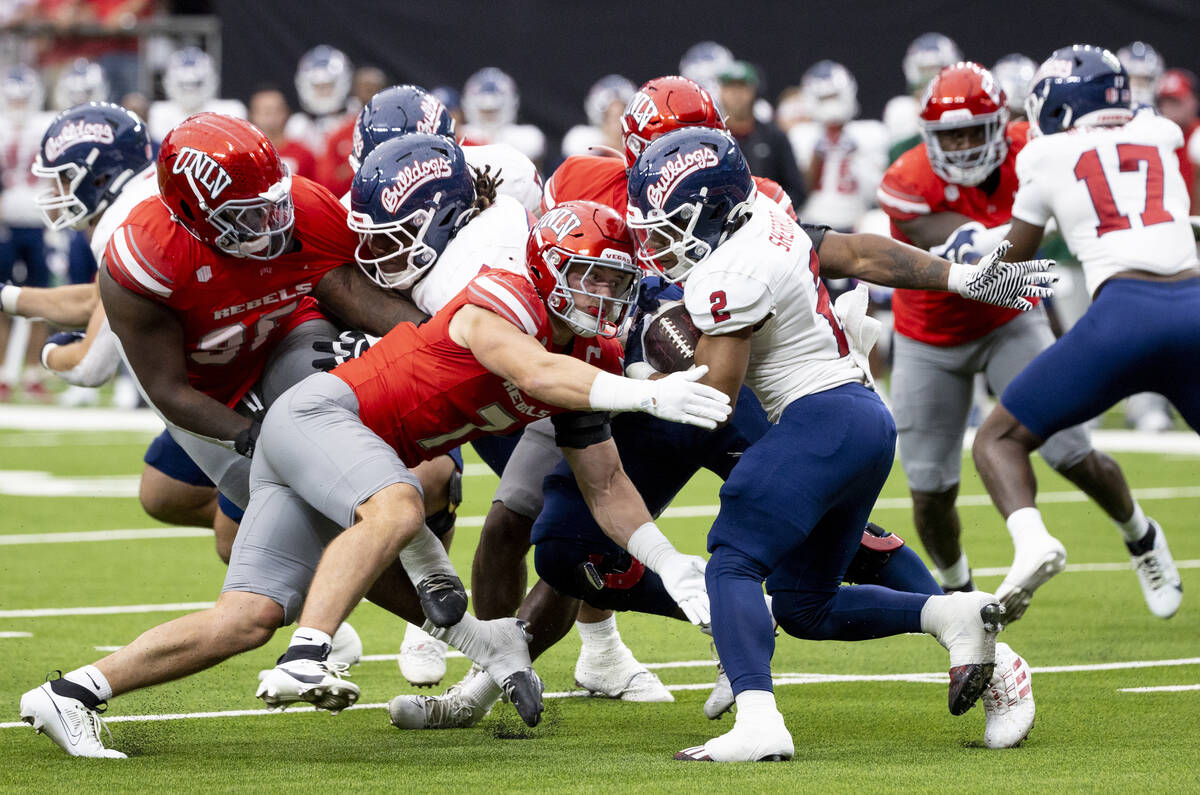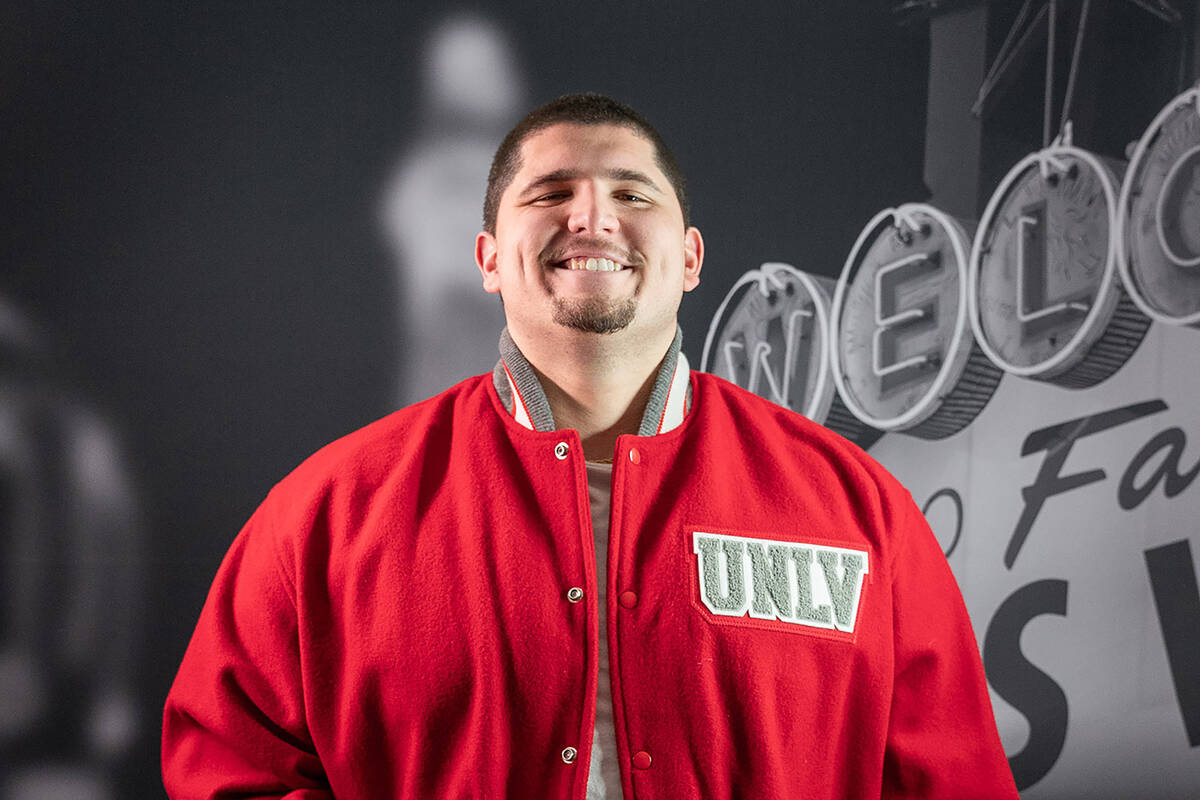Nearly final versions of three outstanding agreements between the Athletics and the Las Vegas Stadium Authority are scheduled to be presented this week.
Updated development, lease and nonrelocation agreements are included on Thursday’s stadium authority meeting agenda. The trio of agreements were introduced earlier this year, and the A’s and the stadium authority have been negotiating various terms.
The agreements lay out the terms of the A’s playing in the team’s planned Las Vegas ballpark, which include lease terms, how many home games the team could play outside of the market each year, and stipulations that would ensure the A’s remain in the city for a set amount of years and what occurrences could open up the door for them to play elsewhere in the future.
After the plans are presented Thursday, the three agreements will be up for approval at a planned Dec. 5 meeting, stadium authority chairman Steve Hill told the Review-Journal last week.
Stadium authority staff also will look to create the Sports and Entertainment Improvement District, which is the funding mechanism to pay for Clark County’s portion of the public funding that will be used for the stadium’s construction. Taxes generated at the ballpark will be used to repay $120 million in bonds the county will issue for ballpark construction.
Senate Bill 1, approved in June 2023, earmarked up to $380 million in public funds to go toward the cost of building the planned $1.5 billion ballpark. The stadium will be built on 9 acres of the 35-acre Tropicana site. The Tropicana’s two hotel towers were imploded last week, to allow for crews to clear the site ahead of the A’s plans to begin construction in the spring.
Not listed on the agenda is the A’s presenting their stadium financing plan to the authority. The A’s must present that plan and have all stadium authority-related agreements approved before public money for the project is made available. The A’s must also enter into a development agreement with Clark County and spend the first $100 million on the project to open up the use of the public funding.
Last week, Hill said he has reviewed A’s owner John Fisher’s family finances and has no doubt that the family has the means to pay for their share of the stadium’s costs.
Fisher told the Review-Journal last week that they will have their “financing plan out for everybody to see soon.”
The A’s have previously stated their plan will feature an $850 million equity contribution by Fisher, a $300 million construction loan and $350 million of the available $380 million in public funds.
Other items on the agenda include drafting the deed for the stadium land, which the A’s will transfer ownership to the stadium authority, and multiple funds also will be created to handle the financing and revenues for the stadium project.
Contact Mick Akers at [email protected] or 702-387-2920. Follow @mickakers on X.

